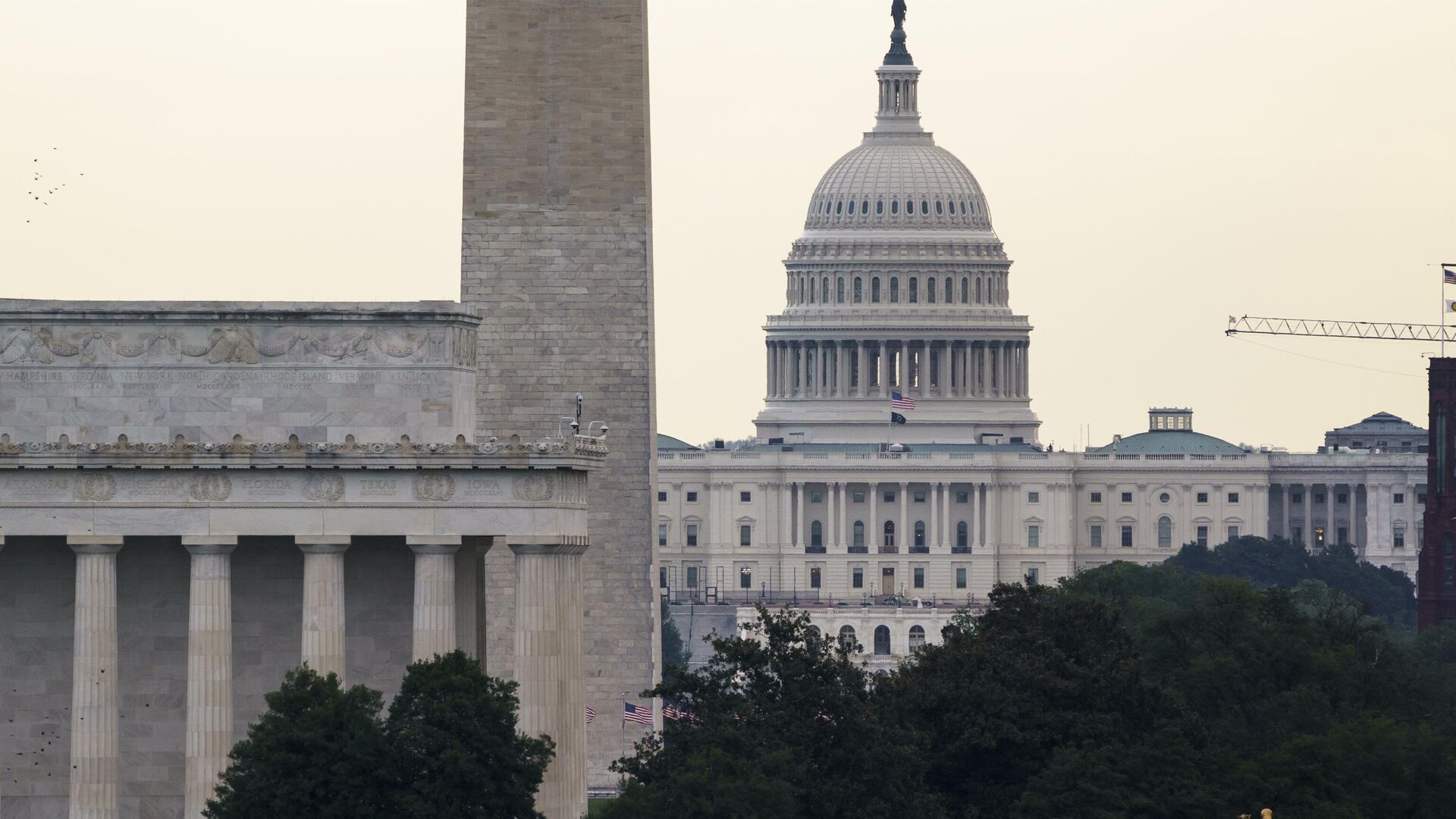https://sputnikglobe.com/20231208/bidens-bid-to-bully-russia-into-peace-talks-on-ukraines-terms-reeks-of-desperation-1115483611.html
Biden's Bid to Bully Russia Into Peace Talks 'on Ukraine's Terms' Reeks of Desperation
Biden's Bid to Bully Russia Into Peace Talks 'on Ukraine's Terms' Reeks of Desperation
Sputnik International
A senior US official has threatened to turn 2025 into a nightmare for Russia unless Moscow comes to the negotiating table on terms amenable to Kiev. Asked to comment, a well-respected political and military affairs expert told Sputnik that the rhetoric coming from the White House reeks of desperation and may signal preparations to dump Kiev.
2023-12-08T17:50+0000
2023-12-08T17:50+0000
2023-12-08T19:33+0000
analysis
alexander mikhailov
volodymyr zelensky
joe biden
ukraine
russia
kiev
nato
white house
kremlin
https://cdn1.img.sputnikglobe.com/img/07e7/0b/0f/1114975089_0:160:3072:1888_1920x0_80_0_0_31ef5e771ff402893e860469122f53de.jpg
The White House has shifted to a strategy of trying to threaten Russia into talks with Ukraine, warning that if it doesn’t come to the table on terms amenable to Kiev, the combined might of NATO’s industrial complex will make Moscow pay dearly.“After 2024, we are ramping up our production, our defense industrial base [and] are working with the Ukrainians… on ramping up their defense industrial base. The European allies of the United States are doing the same thing, and we will be in a much stronger footing a year and a half from now than we are today,” Finer warned.The official stressed that if Moscow doesn’t “come down” to this negotiating position, it “will have to suffer on the battlefield” as Kiev approaches “parity.”Moscow dismissed Finer’s remarks on negotiations “acceptable to Ukraine” in two words, with Kremlin spokesman Dmitry Peskov calling them “absolutely unrealistic.”Finer’s comments echoed remarks made by other Biden administration officials in recent days, as well as a string of US and European media reports in recent weeks about efforts by Washington and its allies to maneuver Russia into negotiations.An Administration on Its Way OutStatements coming out of current administration should be taken with a grain of salt, says Alexander Mikhailov, the head of the Bureau of Military-Political Analysis, a Russian think tank, given that its time in office appears to be running out.“That’s why they can make assumptions and forecasts about Washington’s actions at the end of 2024, especially as concerns supporting Ukraine,” the commentator explained.Two TrajectoriesThe real indicator of the West’s intentions for its Ukrainian proxy war against Russia will depend on the outcome of presidential elections in Ukraine, Mikhailov said.The pundit believes pronouncements on the election issue could emerge before the Christmas holidays, with the West's decision on whether to stick with Zelensky or ditch him in favour of a rival determining the fate of the Ukraine crisis.Since the 2014 Euromaidan coup and the start of the conflict in the Donbass, Western powers and Ukrainian officials have rejected peace on at least three occasions — the Minsk I accords iof 2014, Minsk II the following year and the tentative peace deal Moscow and Kiev reached last year in Istanbul which President Putin later said was thrown “into the dustbin of history” by Zelensky’s sponsors.There are plenty of potential opponents of Zelensky waiting in the wings to replace him, Mikhailov noted, from Kiev Mayor Vitali Klitschko to Foreign Minister Dmytro Kuleba, presidential administration head Andrii Yermak and others, “all of them beginning to travel to Europe and Washington” to present themselves to their Western handlers.“Therefore, a great deal will depend on the coming days, on the decisions taken by the collective West regarding who Ukraine’s president will be after March 2024,” Mikhailov reiterated.Classic Washington Strategy and the Asia PivotThe analyst emphasized that the Ukrainian crisis is similar to conflicts fomented by the West as far back as the Second World War, including Iraq, Afghanistan, Libya, and Syria. The US typically provokes a crisis using political tools and then ships in billions of dollars’ worth of American-made arms, allowing weapon-makers to cash in while destabilizing regions to weaken Washington's adversaries.Not only has US has totally run out of weapons for Kiev, but it is looking to increase arms production ahead of the coming war for the Asia-Pacific, the commentator stressed. “It’s possible, in principle, to find new resources for Ukraine. But the fact is that now supporting Ukraine publicly does not bring political benefits, and on the contrary, drives the Biden administration and the Democratic Party as a whole into negative ratings,” Mikhailov said, with ordinary Americans exhausted by Zelensky and his never-ending calls for more money and weapons.Ahead of the coming election season in the US, “an extremely important question that will be asked is why the Biden administration squandered so many billions of dollars to support Ukraine without achieving anything — neither military nor geopolitical goals in the confrontation with Russia. On the contrary, Russia has only further strengthened its standing” diplomatically, and proven the superiority of its weapons to boot.Returning to Finer’s threats to force Russia into negotiations or face the full power of NATO’s military-industrial complex, Mikhailov emphasized that at the rate Ukrainian men of fighting age are leaving the country to avoid the draft, no amount of arms, whether supplied from abroad or made domestically, will be enough to ensure Kiev’s superiority.As for talk in Washington and Brussels about increasing Ukraine’s domestic arms sector, “these mantras are absolutely meaningless,” Mikhailov said.That, Mikhailov believes, is ultimately why the US is ‘investing’ in military production capabilities among the countries of NATO’s eastern flank rather than in Ukraine, with the future goal being to destabilize the situation along Russia’s western borders and create new threats to Moscow via Poland, the Baltic states or Romania.
https://sputnikglobe.com/20231205/peace-talks-with-russia-uk--us-seeking-quick-face-saving-exit-from-ukraine-debacle--cia-vet-1115412473.html
https://sputnikglobe.com/20231208/scott-ritter-zelensky-sees-the-writing-on-the-wall-1115482906.html
https://sputnikglobe.com/20230131/minsk-agreements-were-a-ruse-that-gave-kiev-time-to-rearm-ukraines-ex-president-admits-1106856464.html
https://sputnikglobe.com/20231207/us-ukraine-officials-in-meetings-agree-counteroffensive-against-russia-failed---reports-1115464250.html
https://sputnikglobe.com/20231208/ukraine-running-out-of-pro-soldiers-as-draft-eligible-men-flee-1115474633.html
ukraine
russia
kiev
Sputnik International
feedback@sputniknews.com
+74956456601
MIA „Rossiya Segodnya“
2023
News
en_EN
Sputnik International
feedback@sputniknews.com
+74956456601
MIA „Rossiya Segodnya“
Sputnik International
feedback@sputniknews.com
+74956456601
MIA „Rossiya Segodnya“
ukraine, russia, proxy war, crisis, conflict, united states, europe, talks, pressure, bullying, negotiations, military-industrial complex, biden administration
ukraine, russia, proxy war, crisis, conflict, united states, europe, talks, pressure, bullying, negotiations, military-industrial complex, biden administration
Biden's Bid to Bully Russia Into Peace Talks 'on Ukraine's Terms' Reeks of Desperation
17:50 GMT 08.12.2023 (Updated: 19:33 GMT 08.12.2023) A senior US official has threatened to turn 2025 into a nightmare for Russia unless Moscow comes to the negotiating table on terms amenable to Kiev. Asked to comment, a respected political and military affairs expert told Sputnik that the rhetoric coming from the White House reeks of desperation and may actually signal preparations to dump Kiev.
The White House has shifted to a strategy of trying to threaten Russia into talks with Ukraine, warning that if it doesn’t come to the table on terms amenable to Kiev, the combined might of NATO’s industrial complex will make Moscow pay dearly.
“I think the place we would like to put the Ukrainians at the end of next year is where Russia is confronted with a decision: either they have to come to the negotiating table on terms that would be acceptable to Ukraine… or they will face a stronger Ukraine, backed by a stronger defense industrial base in the United States, in Europe, and in Ukraine that has more ability to go on the offense,” US deputy national security advisor Jon Finer told a DC think tank this week.
“After 2024, we are ramping up our production, our defense industrial base [and] are working with the Ukrainians… on ramping up their defense industrial base. The European allies of the United States are doing the same thing, and we will be in a much stronger footing a year and a half from now than we are today,” Finer warned.
The official stressed that if Moscow doesn’t “come down” to this negotiating position, it “will have to suffer on the battlefield” as Kiev approaches “parity.”
Finer did not explain why Russia’s “suffering” would have to wait until 2025, nor did he comment on where the West and its Ukrainian proxy would find the resources to make good on these threats. Washington and Brussels are already running low on political capital to continue funding Ukraine, while Kiev is running out of troops to crew even the arms already delivered.
Moscow dismissed Finer’s remarks on negotiations “acceptable to Ukraine” in two words, with Kremlin spokesman Dmitry Peskov calling them “absolutely unrealistic.”
Finer’s comments echoed remarks made by other Biden administration officials in recent days, as well as a string of US and European media reports in recent weeks about efforts by Washington and its allies to maneuver Russia into negotiations.
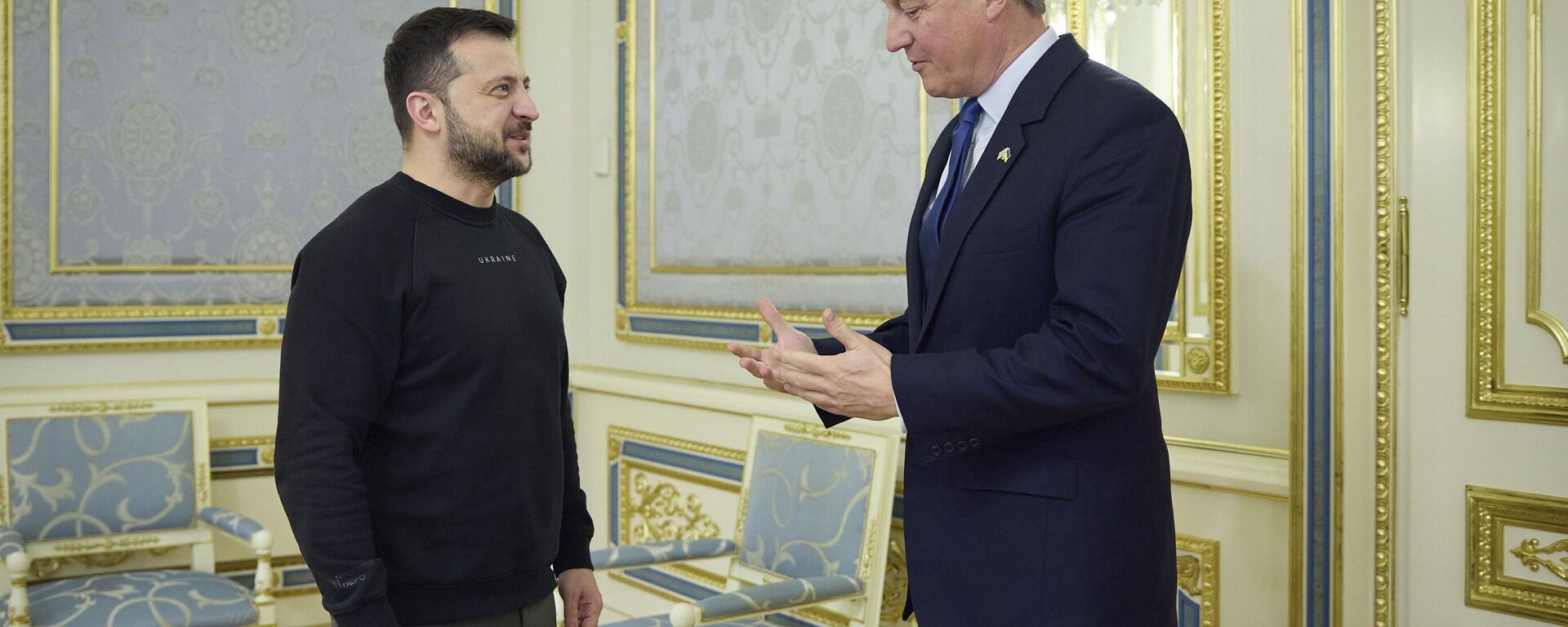
5 December 2023, 18:57 GMT
An Administration on Its Way Out
Statements coming out of current administration should be taken with a grain of salt, says Alexander Mikhailov, the head of the Bureau of Military-Political Analysis, a Russian think tank, given that its time in office appears to be running out.
“I think objectively relying on any assurances, promises and other statements by representatives of the Biden administration when they say something about the period after the fall of 2024 is simply untenable,” Mikhailov told Sputnik, pointing out that people like Finer, Defense Secretary Austin, Secretary of State Antony Blinken are all likely to be kicked out of office after the US elections.
“That’s why they can make assumptions and forecasts about Washington’s actions at the end of 2024, especially as concerns supporting Ukraine,” the commentator explained.
The real indicator of the West’s intentions for its Ukrainian proxy war against Russia will depend on the outcome of presidential elections in Ukraine, Mikhailov said.
“It’s difficult to know who will be in charge of the Kiev regime after March 2024, because neither Washington nor European leaders have placed bets on whether to pick a new leader, or a second term for Zelensky. The only thing we’ve got is the postponement of the elections or their possible move to a later date. But this too cannot last long, and Ukraine will have to decide on a new president,” he noted, emphasizing that Washington, Brussels and London, naturally, will of course “play the main fiddle” in their organization.

8 December 2023, 17:01 GMT
The pundit believes pronouncements on the election issue could emerge before the Christmas holidays, with the West's decision on whether to stick with Zelensky or ditch him in favour of a rival determining the fate of the Ukraine crisis.
“If the collective West supports Zelensky for a second term, this will indicate that the West, and mainly Washington, will continue to do everything they can to stuff the Ukrainian theater with weapons, and further scrape the bottom of the barrel of their partners," Mikhailov explained. "But if we see the collective West abandoning Zelensky and moving to propose a new candidate… the entire Ukrainian case will likely be flushed down the drain, that is, frozen militarily as much as possible, possibly, in large extent on Russia’s terms. Because Russia is unlikely to listen to the West and Ukraine after repeated proposals to normalize the situation which the West and Ukraine didn’t make happen.”
Since the 2014 Euromaidan coup and the start of the conflict in the Donbass, Western powers and Ukrainian officials have rejected peace on at least three occasions — the Minsk I accords iof 2014, Minsk II the following year and the tentative peace deal Moscow and Kiev reached last year in Istanbul which President Putin later said was thrown “into the dustbin of history” by Zelensky’s sponsors.
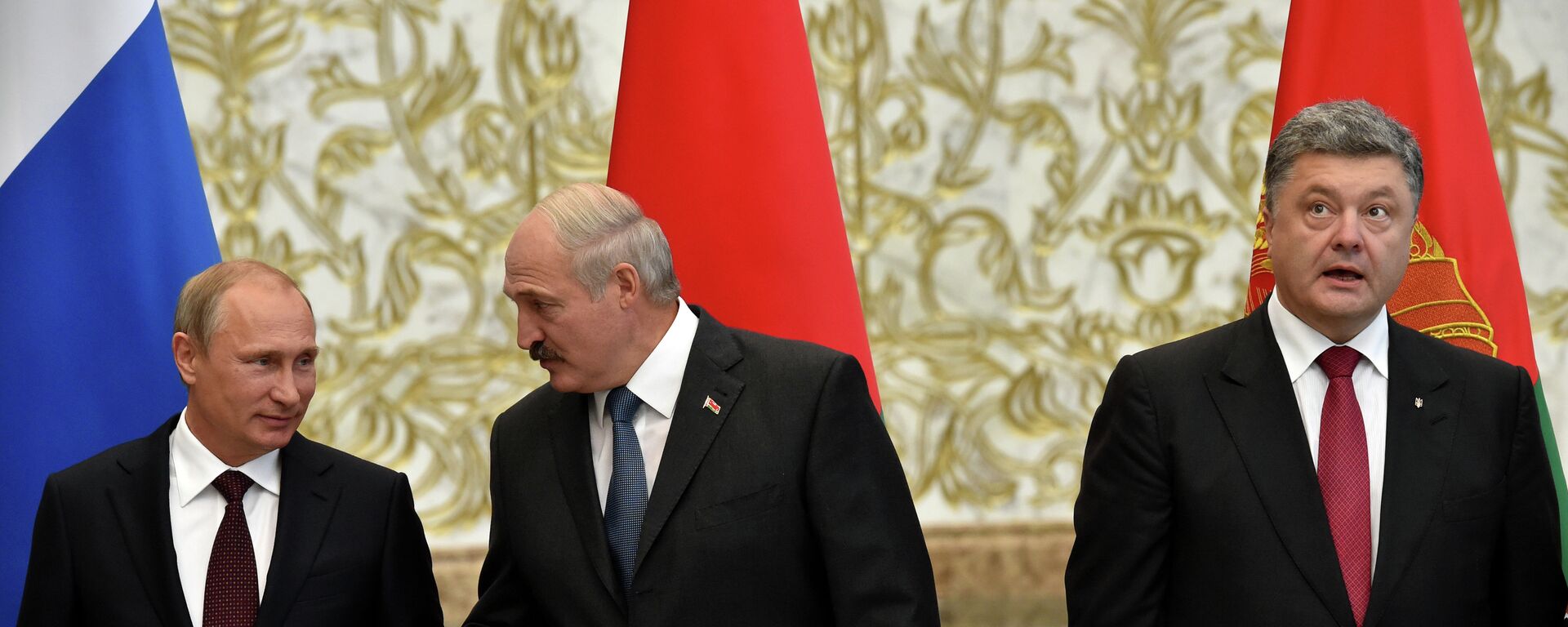
31 January 2023, 13:27 GMT
There are plenty of potential opponents of Zelensky waiting in the wings to replace him, Mikhailov noted, from Kiev Mayor Vitali Klitschko to Foreign Minister Dmytro Kuleba, presidential administration head Andrii Yermak and others, “all of them beginning to travel to Europe and Washington” to present themselves to their Western handlers.
“Therefore, a great deal will depend on the coming days, on the decisions taken by the collective West regarding who Ukraine’s president will be after March 2024,” Mikhailov reiterated.
Classic Washington Strategy and the Asia Pivot
The analyst emphasized that the Ukrainian crisis is similar to conflicts fomented by the West as far back as the Second World War, including Iraq, Afghanistan, Libya, and Syria. The US typically provokes a crisis using political tools and then ships in billions of dollars’ worth of American-made arms, allowing weapon-makers to cash in while destabilizing regions to weaken Washington's adversaries.
But in Ukraine’s case, Washington will have to balance in its perennial goal of destabilizing Eurasia with the need to pivot to Asia for a military campaign against China, likely relying on proxies once again, Mikhailov believes. “Ukraine for the Americans was, in large measure, a warm-up,” rather than the main event, he said.
Not only has US has totally run out of weapons for Kiev, but it is looking to increase arms production ahead of the coming war for the Asia-Pacific, the commentator stressed.
“It’s possible, in principle, to find new resources for Ukraine. But the fact is that now supporting Ukraine publicly does not bring political benefits, and on the contrary, drives the Biden administration and the Democratic Party as a whole into negative ratings,” Mikhailov said, with ordinary Americans exhausted by Zelensky and his never-ending calls for more money and weapons.
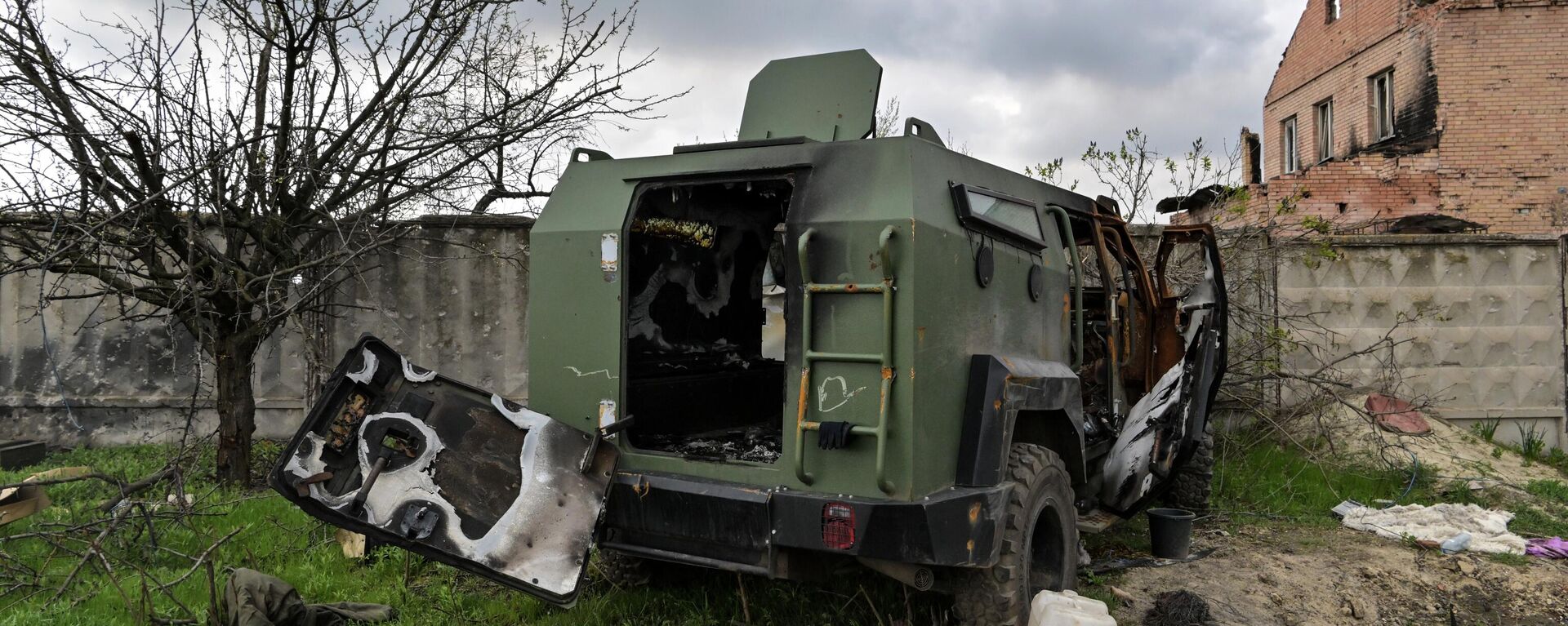
7 December 2023, 21:53 GMT
Ahead of the coming election season in the US, “an extremely important question that will be asked is why the Biden administration squandered so many billions of dollars to support Ukraine without achieving anything — neither military nor geopolitical goals in the confrontation with Russia. On the contrary, Russia has only further strengthened its standing” diplomatically, and proven the superiority of its weapons to boot.
Returning to Finer’s threats to force Russia into negotiations or face the full power of NATO’s military-industrial complex, Mikhailov emphasized that at the rate
Ukrainian men of fighting age are leaving the country to avoid the draft, no amount of arms, whether supplied from abroad or made domestically, will be enough to ensure Kiev’s superiority.
“Ukraine’s military power…can grow from only two sources: first, they produce the weapons themselves on their own territory and develop their own defense industry, or they purchase or receive weapons from abroad. The Ukrainians have been doing the latter for the last year-and-a-half,” the analyst said.
As for talk in Washington and Brussels about increasing Ukraine’s domestic arms sector, “these mantras are absolutely meaningless,” Mikhailov said.
“Because it is impossible to develop any military production in Ukraine, except for the assembly of drones or some equipment. Any projects more serious than that related to the deployment of technological capacities for the production of complex weapons systems, aircraft, air defense systems, etc. are impossible, because Russia is targeting industrial facilities related to the defense industry," he said. "It targets them methodically, and if the enemy tries to restore them, strikes them again. And Russia has a whole range of air and missile weaponry for this purpose.”
That, Mikhailov believes, is ultimately why the US is ‘investing’ in military production capabilities among the countries of NATO’s eastern flank rather than in Ukraine, with the future goal being to destabilize the situation along Russia’s western borders and create new threats to Moscow via Poland, the Baltic states or Romania.
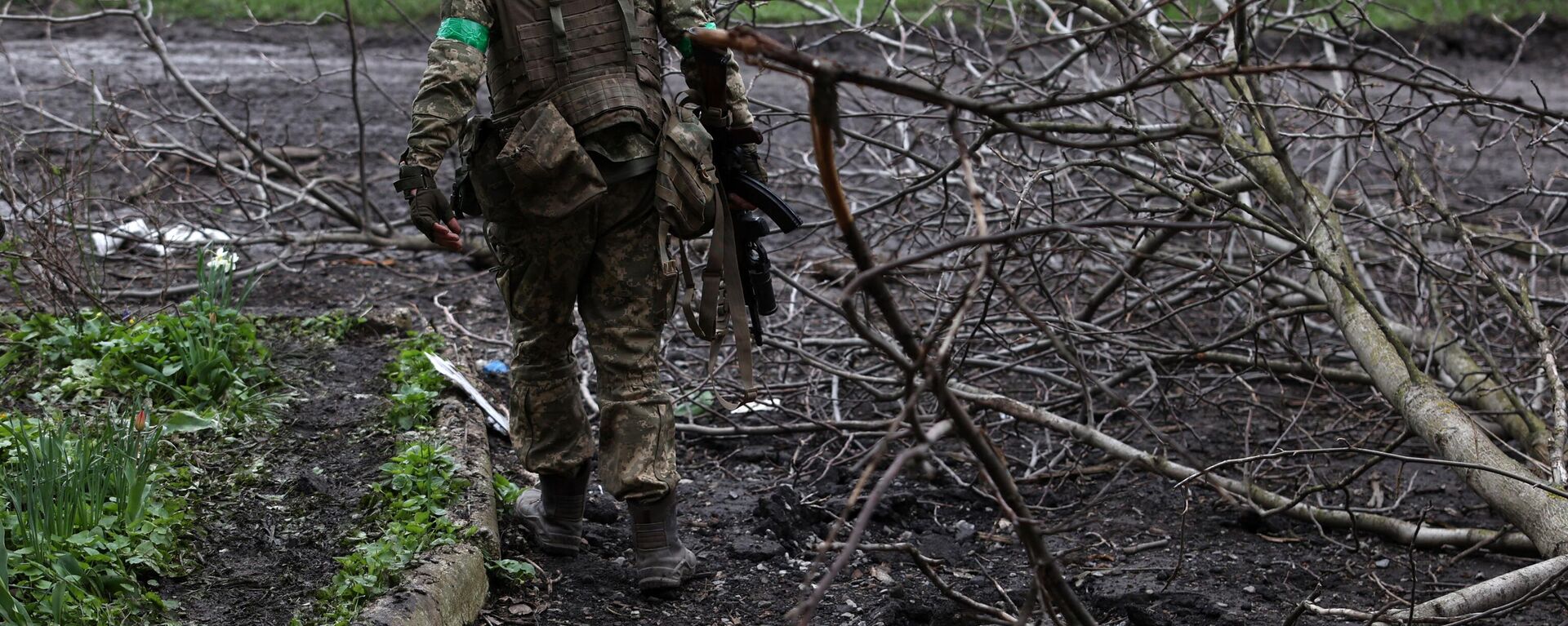
8 December 2023, 12:46 GMT
